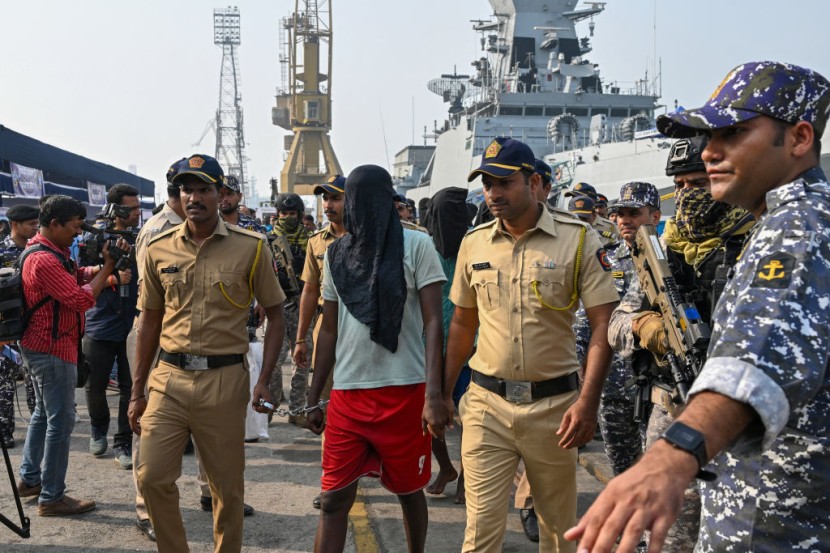
Somali pirates claim they were paid $5 million in ransom to release a hijacked cargo ship and its 23 crew members, according to a report Sunday.
"The money was brought to us two nights ago as usual ... we checked whether the money was fake or not," one of the pirates, Abdirashiid Yusuf, told Reuters. "Then we divided the money into groups and left, avoiding the government forces."
The vessel's owner, the KSRM Group, confirmed that it "struck a deal with the pirates," according to the BBC, which cited the AFP news agency.
"We cannot say more about the money," said Mizanul Islam of SR Shipping, KSRM's maritime arm. "All the crew are safe and secure."
The Bangladesh-flagged MV Abdullah was escorted by two warships after being released, the BBC said.
The ship was reportedly carrying a load of coal from Mozambique to the United Emirates when it was hijacked in March about 600 nautical miles east of Somalia's capital, Mogadishu.
Somali pirates wreaked havoc on international shipping between 2005 and 2012, hijacking 149 vessels and reaping as much as $385 million in ransom payments, according to a 2013 report by the World Bank.
The incidents included the 2009 hijacking of the American freighter Maersk Alabama, which inspired the acclaimed 2013 Tom Hanks movie "Captain Phillips."
U.S. Navy SEALs killed three pirates during a rescue mission, with the lone surviving pirate, 5-foot-2 Abduwali Muse, sentenced to nearly 34 years in federal prison in 2011.
Muse led the armed hijacking and at one point played a one-sided game of Russian roulette with Capt. Richard Phillips, according to prosecutors.
Somali piracy plunged after more than 40 countries launched anti-piracy efforts in waters off the Horn of Africa but surged recently, with the BBC reporting more than a dozen incidents since late November.
Security experts blamed the situation on foreign navies shifting their attention to the Red Sea, where Yemen's Houthi rebel group has been attacking ships.
© 2026 HNGN, All rights reserved. Do not reproduce without permission.








